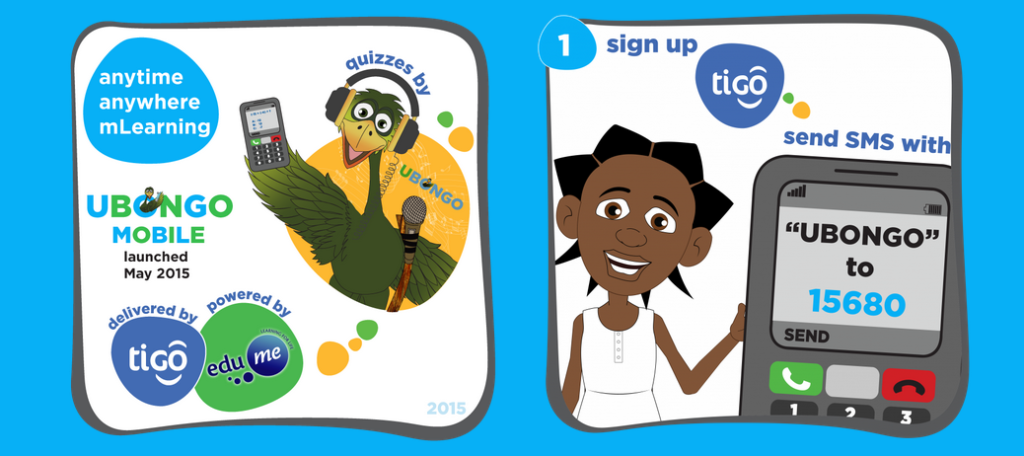Ubongo, based in Dar Es Salaam Tanzania, create an edu-cartoon watched by over 1.4 million Tanzanians on free to air national television. Children watching the Saturday morning shows are invited to interact through SMS on basic mobile phones. The talking / rapping Giraffe will phone the child and ask a series of maths questions. If you get five questions right in a row you get to hear the Giraffe sing an (educational) song. This is a good example of an implementation of Gamification in Education. We can breakdown why this ‘edutainment’ episode produced by Ubongo is so effective based on the Neuroscience research by Bristol university on risk and variable rewards. If the child is hoping to hear a song from the giraffe they are already receiving a Dopamine (happy chemical) hit. As this keeps them attentive and focused, it is an ideal teaching moment. If they do get to hear a song they receive another hit of Dopamine.
Another example from Ubongo is this ten minute educational video about adding decimal numbers. The gamification technique of story-telling and narrative tension is effective in engaging someone to watch the whole 10 minutes. If this was a Khan Academy style educational video the viewer would not have been enticed to keep watching just to see how the story ends. There is even a plot twist involving knots that added an element of surprise and denouement. With maths exercises, repetition is the key to embedding these concepts so wrapping a story and characters around basic problems is an effective way of using repetition without boredom.
Ubongo Kids Clubs, which are now being trialled in north Tanzania, are community-based groups of children invited to watch the Ubongo episodes together and complete worksheets. This is being accomplished through the re-use of existing community spaces set up for watching sports events. Even the most remote villages in Tanzania will have a communal large screen television set up in a Cafe ready for public viewing of football games. The off-peak times at these community centres is being re-purposed into group learning using Ubongo edutainment. This peer learning with minimal supervision is similar to Sugata Mitra’s work with self-organised learning environments, which is being used successfully around the world.
